India’s No. 1 Online Admission Portal Apply Now
India’s No. 1 Online Admission Portal Apply Now
Government
1972
Yoshkar-Ola, Russia
MCI, WHO
MCI, WHO
Mari State University is one of the young classical universities in the country, a large educational and scientific centre of the Republic of Mari El and the Volga Federal District.
On May 4, 1971, the Minister of Higher and Secondary Specialized Education of the RSFSR V.N. Stoletov signed an order on the organization of a university in Yoshkar-Ola, designed to fill the acute shortage of personnel for the intensively developing leading sectors of the republic's national economy: industry, construction and agriculture.
The initiators of the creation of the university were the first secretary of the Mari Regional Committee of the CPSU V.P. Nikonov, Chairman of the Presidium of the Supreme Council of the MASSR P.A. Almakaev and Chairman of the Council of Ministers of the Republic T.I. Gorinov, who in January 1970 appealed to the Central Committee of the CPSU and the Council of Ministers of the USSR with a request to create the first university on the Mari land. Comprehensive support of the Central Committee of the CPSU, the Union and Russian governments became the key to the success of the new undertaking. Already in December, the structure of the MarSU was approved, consisting of the historical-philological, biology-chemical, physics and mathematics, agricultural faculties, a preparatory department, 17 departments, a research sector, 40 classrooms and laboratories. It was planned to conduct training in 10 specialities. At the same time, the construction of educational buildings, a residential building for teachers began.
Classes for students of the Faculty of Agriculture, temporarily housed at the Mari Polytechnic Institute, began on September 1, 1971; a year later, students from other faculties also began to study. In December 1971, the preparatory department was opened. In January 1972, the Faculty of Natural Sciences of the Mari Pedagogical Institute was transferred to MarSU and transformed into the Faculty of Biology and Chemistry.
During 1971, the Government of the Republic transferred two former buildings of the House of Soviets to the university. In the summer of 1972, the biology, chemistry and agricultural faculties were housed in a newly built standard secondary school building. By decision of the bureau of the regional committee of the CPSU, dozens of enterprises in the cities of Yoshkar-Ola and Volzhsk on special orders were engaged in equipping equipment, furniture, inventory - everything necessary for the organization of the educational process. The dormitory building of the Mari Pedagogical Institute under construction was leased to the university to accommodate students. The Pedagogical and Polytechnic Institutes shared their scientists with MarSU. More than 20 universities of the country participated in the acquisition of the university library, including Riga, Lvov, Chisinau, Odesa, Saransk, Petrozavodsk, Alma-Ata, Perm, Kazan, Kirov, Moscow.
NMC, WHO
NMC, WHO
4
| Particulars | Year 1 | Year 2 | Year 3 | Year 4 | Year 5 | Year 6 |
| Tuition Fee (approx.) | $4000 | $4000 | $4000 | $4000 | $4000 | $4000 |
| Hostel Fees | $500 | $500 | $500 | $500 | $500 | $500 |
***Interim fee for the session 2026-2027 and subject to change as per the guidelines of State Level Fee Determination Committee, Government of Mariy-El**.
Boys Hostel
Girls Hostel
Sports
Transportation
Wifi
Step 1: Fill the application form.
Step 2: Copy of international passport or ID card(minimum valid for 2 years).
Step 3: Copy of Higher secondary school certificate ( with subject details).
Step 4: Copy of school certificate.
Step 5: After receiving essential documents and payment, the university will send the original confirmation letter and visa letter by courier.
Step 6: Apply for a Visa.
Yes, after completing MBBS, students must pass the FMGE (until 2024) or NEXT (from 2024 onwards) to practice in India.
The city experiences cold winters (-10°C to -25°C) and mild summers (15°C to 30°C). Indian students should be prepared for the winter conditions.
Yes, Indian food is available in the hostel mess, and students can also cook their own meals in shared kitchens.
Separate hostels for boys and girls 24/7 security & CCTV surveillance Indian food available (both vegetarian & non-vegetarian) Wi-Fi, laundry, gym, and study halls
Yes, a study gap is acceptable, provided the student meets all other eligibility criteria.
No, there is no entrance exam. Admission is based on NEET score and academic performance.
Must have completed 10+2 (PCB) with at least 50% marks (40% for SC/ST/OBC). NEET qualification is mandatory as per NMC regulations. The student must be at least 17 years old by 31st December in the admission year.
The MBBS program is 6 years long, which includes 5 years of academic study and 1 year of internship.
The MBBS course is taught in English for international students. However, students also learn basic Russian for clinical practice in hospitals.
Yes, Mari State University is recognized by the National Medical Commission (NMC, formerly MCI) and is listed in the World Directory of Medical Schools (WDOMS).
0 Reviews
Academic
(0/5.0)
Faculty
(0/5.0)
Infra
(0/5.0)
Placements
(0/5.0)
No Review Found
No Question Found

Gazipur, Bangladesh | BMDC, NMC, WHO

Muzaffarpur | NMC, WHO

Paliganj, Patna | NMC

Syktyvkar, Komi Republic | NMC, WHO

Vladivostok, Primorsky Krai, Russia | NMC, WHO

Tambov, Tambov Oblast, Russia | NMC, WHO
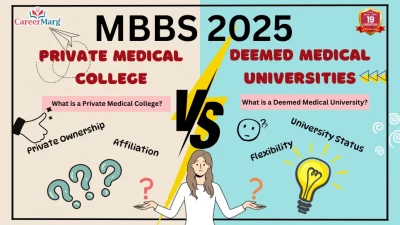
21st March 2025
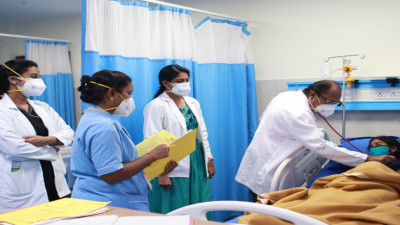
21st March 2025
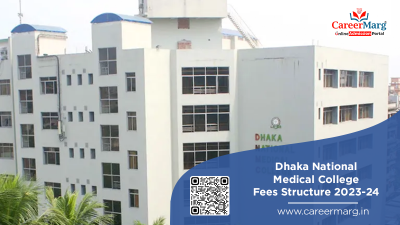
11th July 2023
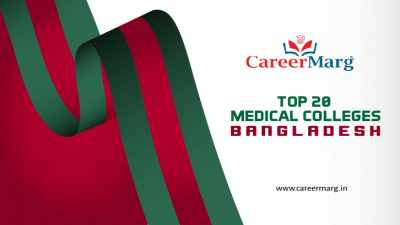
11th October 2025
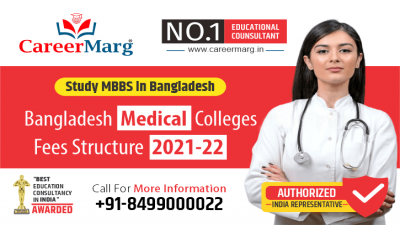
17th March 2022
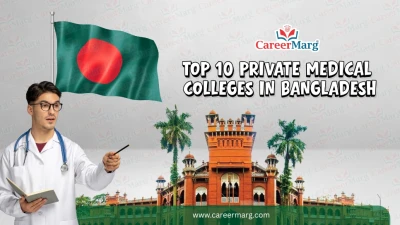
13th October 2025